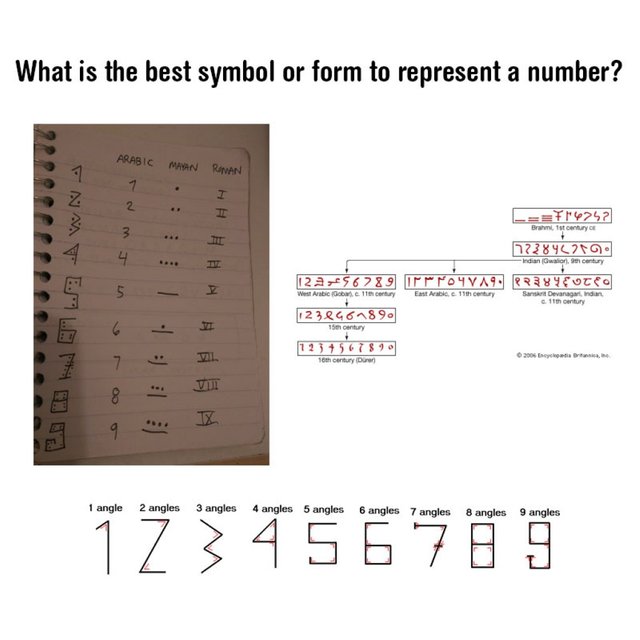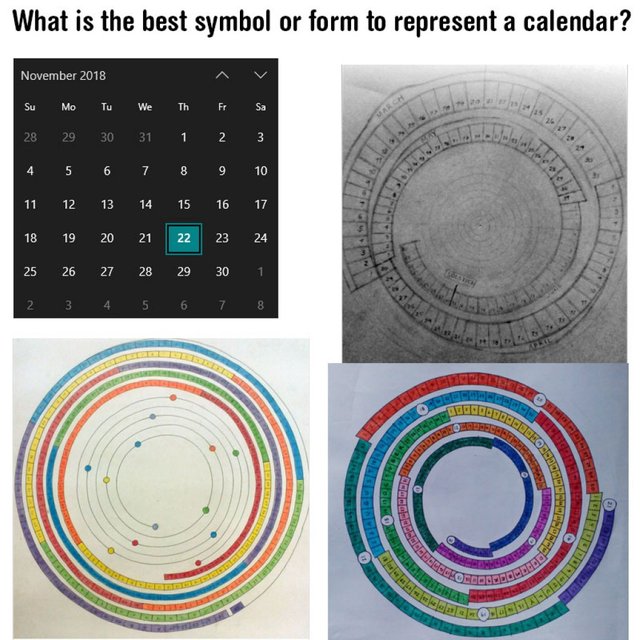The Perfect Number
It doesn't exist yet, we're building it. It isn't defined yet, we're defining it as we build it. The topics explored in this blog are #semiotics, #linguistics, #phonology, #horology, chronology, alphabets, and how to interface information into time keeping devices to enhance our languages. Ancient Greek philosophy conceptualized perfect "forms", so we can apply this strive for perfection to improve our base 10 numbering system. It's difficult to do mathematics using Roman or Mayan numbers, whereas Hindu/Arabic is easier. Let's apply this type of easing to enhance our languages and alphabets too. Notice how the Hindu/Arabic numbers also represent angles and thereby symbolically represent the quantity they are. The Hindu/Arabic numbers have been stylized and abstracted over time, but the original numbers are represented as angles as seen in this example.

Following this line of reasoning with numbers, what is the best way to display time? Here are examples of the Gregorian Calendar as a Spiral instead of as a grid of columns and rows. People talk about Sacred Geometry but what does that really mean? There's no doubt that we can embed more information into a spiral interface. We will also enhance our alphabet when we build them into spiral interfaces.
